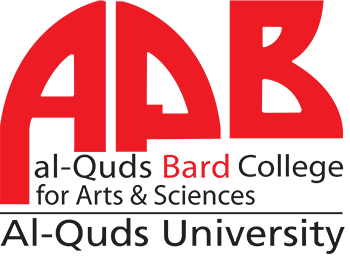Network Collaborative Courses: AQB is an active participant in Bard Network courses, which are now integrated into OSUN. During 2020-2021, AQB offered the following network collaborative courses: Human RightsAdvocacy, Global Citizenship, and Freedom of expression, and A Lexicon of Migration.
OSUN Courses: This Fall Semester of 2021, AQB is offering the Law and Politics of State Violence Course as an OSUN Course, which brings together students from multiple campuses synchronously. The course is taught by AQB Political Science Program Head, Dr. AmnehBadran. In Spring 2022, AQB will offer Gazing at/through/within the Arab World, Advanced Topics in International Law: Technology and Human Rights in The Twenty-First Century (Possibilities, Challenges and Threats), and Special Topics in Social Thought: Dislocated Identities in a Fragmenting World as OSUN Courses.
Entrepreneurship Course: Social Entrepreneurship is a cross-institution collaborative course that is offered this Fall of 2021 at AQB by Dalia Najjar. Dalia Najjar is a Palestinian graduate from Bard College, NY with an M.S. in Environmental Policy, who currently works as the General Manager of a Palestinian-American company in Ramallah. In this course, AQB students will have the opportunity to explore the new and fast-growing field of social entrepreneurship – using business methods and international teams to battle social and environmental challenges.Student teams will develop models for social enterprises creating a “shark tank for sustainability” and winning teams will compete at the Bard MBA’s annual Disrupt to Sustain pitch competition. In Spring 2022, AQB is going to offer a course entitled “Leading Change in Organizations”, which is a follow-up to the Social Entrepreneurship Course.
OSUN Hubs for Connected Learning Initiatives:For the past two years, AQB has included learners from refugee and other marginalized communities in a number ofits courses. This Fall Semester of 2021, AQB is welcoming refugee learners in the AQB Course: Women’s, Children’s, and Minorities’ Rights.During the Fall 2020 Semester, AQB opened up four courses to refugee learners: Special Topics in Human Rights, Documentation and Reporting (Human Rights Advocacy), Philosophy & Politics of Human Rights, and Global Citizenship. Moreover, during spring 2020/21 AQB included refugee learners in network collaborative courses like Freedom of Expression.
Critical Practice Studio (CPS): The Critical Practice Studio (CPS) is an ambitious post-disciplinary and bi-lingual intensive program conducted in both Arabic and/or English. The 2021 CPS unfolds across three stages: an online reading week, a week-long hybrid residency that takes place online and in Dheisheh, Palestine, and an in-person exhibition and presentation event to mark the conclusion of the CPS and completion of student projects in the winter. As a prelude to the 2021 (CPS) Program,a videographic short study has been produced by emerging film-maker Rami Fararjeh. This videographic study will continue to evolve into a short film during the duration of the CPS.
The Master of Fine Arts Teaching Fellowship initiative (MFA-TF) is a collaboration between the MFA program at Bard College (Annandale) and Al-Quds Bard College that invites MFA teaching fellows to lead 4-week modules embedded in AQB courses under the supervision and guidance of AQB professors. The goal of the initiative is three-fold: 1) To provide meaningful teaching opportunities and teaching mentorship to Bard College MFA students; 2) To promote arts-based learning and critical thinking into coursework across AQB programs; and 3) To provide professors with the opportunity to gain practical experience in using the arts as a vehicle for critical inquiry and analysis, even when course content is not arts focused.
MENA SOLVE CLIMATE: Solve Climate by 2030 is a coordinated climate education initiative across OSUN and beyond. It organizes educators to dedicate the first Wednesday of April each year during the 2020s as a day for global, coordinated education on climate solutions. The project creates and promotes templates for educational initiatives, highlighting ambitious local and regional climate solutions, and ways in which students and other citizens can engage with communities to support these solutions.



